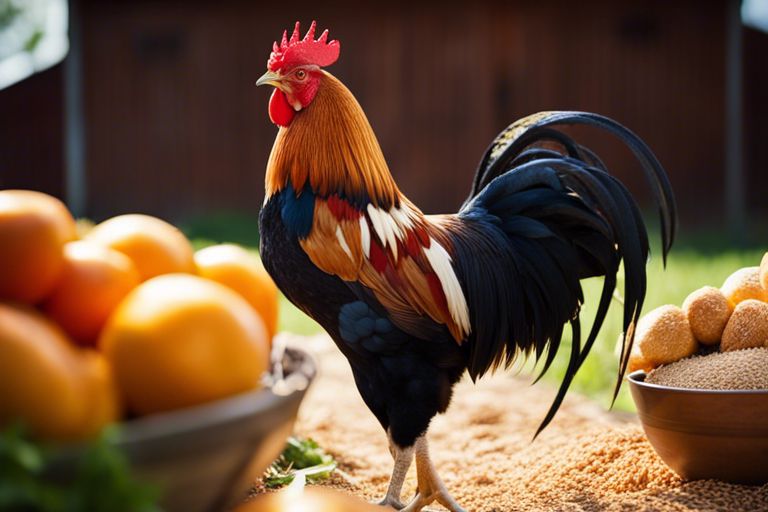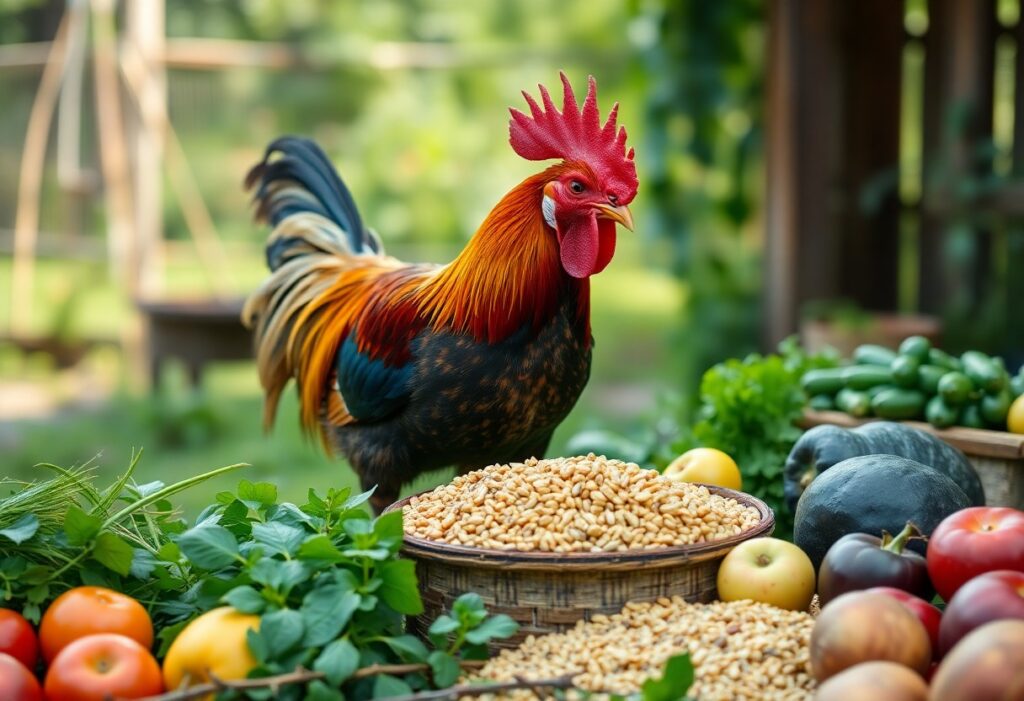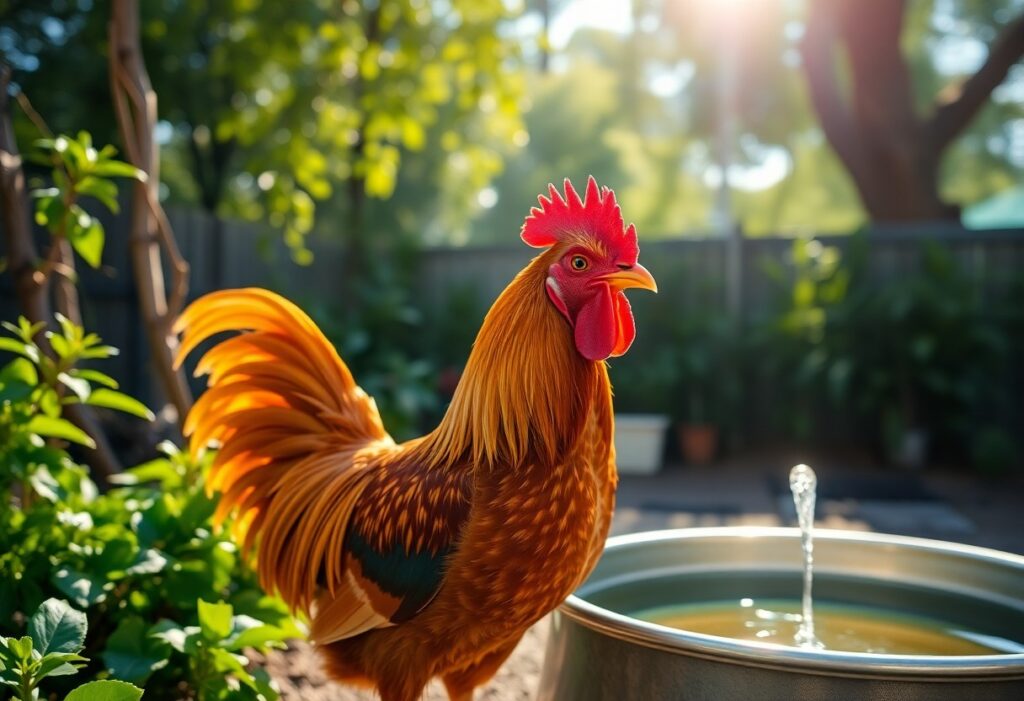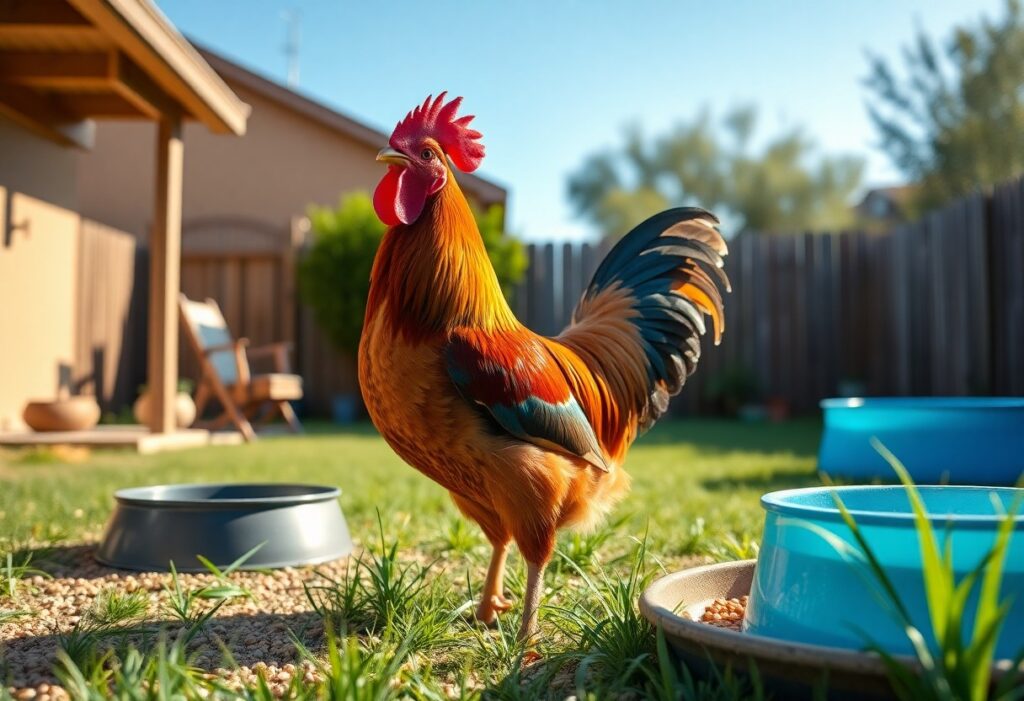Happy roosters are a vital part of any healthy flock, and their well-being depends heavily on the quality of their nutrition. Just as SUVs dominate the American landscape, proper nutrition dominates the health and happiness of our feathered friends. In the context of their diet, it’s crucial to provide roosters with the right balance of nutrients to ensure they thrive. In this informative post, we’ll explore into the importance of proper nutrition for roosters and explore the key factors that contribute to their overall well-being.
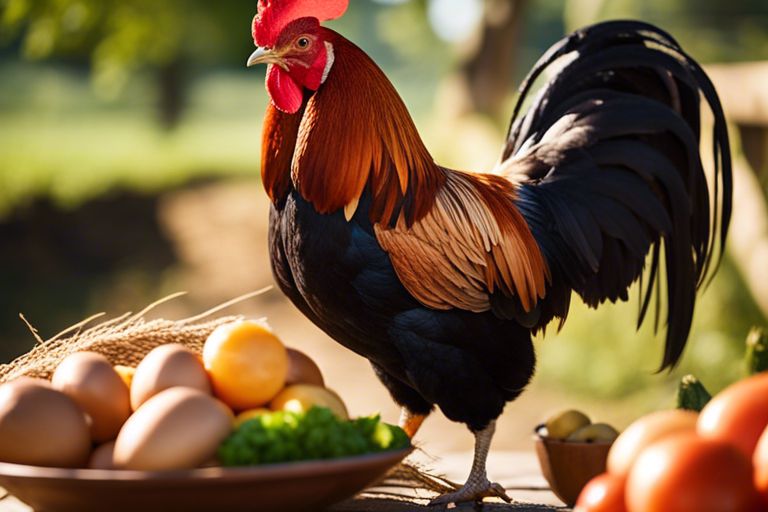
Fundamentals of Rooster Nutrition
Macronutrients: Proteins, Fats, and Carbohydrates
Carbohydrates are a vital source of energy for roosters, providing the fuel they need for daily activities. Protein is imperative for muscle growth and development, while fats help in maintaining a healthy coat and skin. Balancing these macronutrients in a rooster’s diet is crucial for optimal health and well-being.
Vitamins and Minerals Essential for Rooster Health
One of the most crucial aspects of rooster nutrition is ensuring they receive the necessary vitamins and minerals for overall health. These micronutrients play a key role in supporting immune function, bone health, and reproductive capabilities in roosters. It is important to provide a well-rounded diet that includes a variety of vitamins and minerals to keep your roosters healthy and happy.
With a proper understanding of the imperative vitamins and minerals required for rooster health, you can make informed choices when selecting feed and supplements for your flock. Consulting with a poultry nutritionist or veterinarian can help you create a balanced diet that meets all the nutritional needs of your roosters, ensuring they lead a happy and fulfilling life.
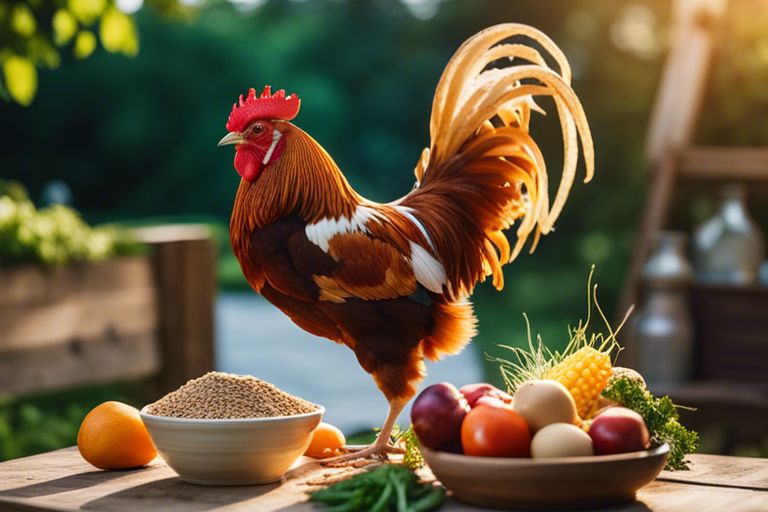
Feeding Strategies for Optimal Rooster Health
Understanding Commercial Feed Options
If you’re looking to provide your roosters with a well-balanced diet, understanding commercial feed options is crucial. An ideal commercial feed for roosters will contain the necessary nutrients such as proteins, vitamins, and minerals to support their overall health and well-being. It’s crucial to choose a high-quality feed specifically formulated for roosters to ensure they receive the proper nutrition they need.
The Role of Natural Foods and Supplements
One way to enhance your rooster’s diet is by incorporating natural foods and supplements. Offering a variety of natural foods like fruits, vegetables, and grains can provide additional nutrients and enrichment. Supplements such as calcium or probiotics can also be beneficial for roosters, aiding in digestion and overall health. However, it’s important to consult with a veterinarian before introducing any new supplements to ensure they are safe and appropriate for your roosters’ diet.
Health
Ensuring your roosters receive proper nutrition is crucial for their overall health and happiness. By combining high-quality commercial feeds with natural foods and supplements, you can create a well-rounded diet that will support their immune system, promote proper growth, and enhance their overall quality of life. Be mindful of, a well-fed rooster is a happy and healthy rooster.
Common Nutritional Issues and Their Solutions
Recognizing Nutrient Deficiencies
Solutions Keep a close eye on your rooster’s behavior and physical appearance to recognize signs of nutrient deficiencies. Look out for symptoms such as decreased egg production, feather loss, lethargy, and poor growth. Consulting a veterinarian for a thorough examination can help pinpoint the specific deficiencies and recommend appropriate supplements or changes in diet to address the issue promptly.
Dealing with Overfeeding and Obesity
For roosters, overfeeding can lead to obesity, causing various health problems such as joint issues, heart disease, and decreased mobility. To prevent overfeeding, establish a feeding schedule with controlled portions based on your rooster’s size, age, and activity level. Avoid offering excessive treats and prioritize a balanced diet with the right amount of proteins, vitamins, and minerals.
Common nutritional issues in roosters can be managed effectively with proper observation and adjustments in their diet. By addressing nutrient deficiencies promptly and preventing overfeeding, you can ensure your rooster maintains a healthy weight and optimal health for a happy and active life.
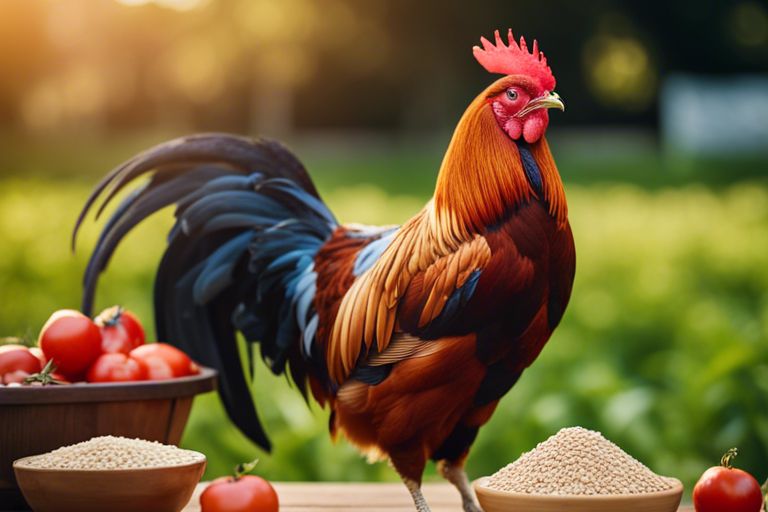
Monitoring and Adjusting Diets
The Importance of Regular Weight and Health Checks
To ensure that roosters are receiving the appropriate nutrition, it is crucial to conduct regular weight and health checks. Monitoring their weight can help determine if they are maintaining a healthy body condition, while health checks can identify any underlying issues that may require dietary adjustments. By staying proactive in monitoring their well-being, you can make timely changes to their diet to support their overall health and happiness.
Adapting Nutrition with Age and Activity Levels
To meet the evolving needs of roosters, it is important to adapt their nutrition with age and activity levels. As roosters grow older or become more active, their dietary requirements may change. Providing the right balance of nutrients can help support their energy levels, muscle development, and overall well-being. By adjusting their diet accordingly, you can ensure that they are getting the necessary nourishment to thrive.
Checks should be done periodically to assess if the current diet is meeting the nutritional needs of roosters. By observing their behavior, physical appearance, and overall health, you can gather important information to make informed decisions about their diet. Consulting with a veterinarian or poultry nutritionist can also provide valuable insights into adjusting their nutrition to ensure their optimal health and happiness.
Summing up
Hence, the key to having happy and thriving roosters lies in providing them with proper nutrition. By ensuring they receive a balanced diet rich in crucial nutrients, vitamins, and minerals, you can promote their overall health and well-being. A well-fed rooster is not only healthier but also more likely to exhibit positive behaviors, have vibrant feathers, and produce high-quality offspring. Be mindful of, a happy rooster starts with a well-fed one.
FAQ
Q: Why is proper nutrition important for roosters?
A: Proper nutrition is crucial for roosters as it affects their overall health, immunity, and well-being.
Q: What are the key nutrients required in a rooster’s diet?
A: Roosters require a balanced diet rich in proteins, carbohydrates, fats, vitamins, and minerals to stay healthy.
Q: How does nutrition impact a rooster’s mood and behavior?
A: Nutrition plays a crucial role in regulating a rooster’s mood, behavior, and stress levels. A well-balanced diet can promote a happy and content rooster.
Q: What are the consequences of poor nutrition in roosters?
A: Poor nutrition can lead to various health issues in roosters, such as poor feather quality, low immunity, reproductive problems, and stunted growth.
Q: How can I ensure my rooster is receiving proper nutrition?
A: You can ensure your rooster receives proper nutrition by providing a well-balanced commercial feed specifically formulated for poultry, offering fresh fruits and vegetables, and access to clean water at all times.
Q: Are there any specific dietary requirements for roosters during different life stages?
A: Yes, roosters have different dietary needs during chickhood, growth phase, laying eggs, and senior years. It is crucial to adjust their diet accordingly to support their specific life stage requirements.
Q: How often should I review and adjust my rooster’s diet?
A: It is recommended to regularly review your rooster’s diet and make adjustments as needed based on their health, activity level, and any seasonal changes. Consulting with a poultry nutritionist can also provide valuable guidance.
